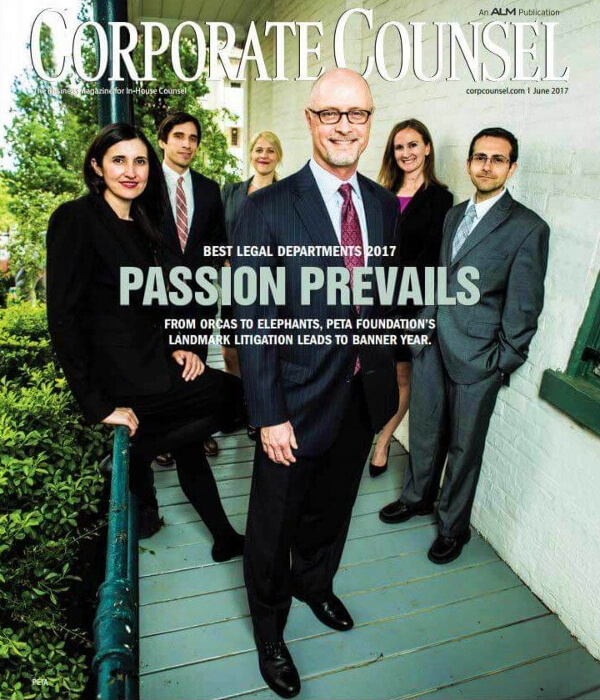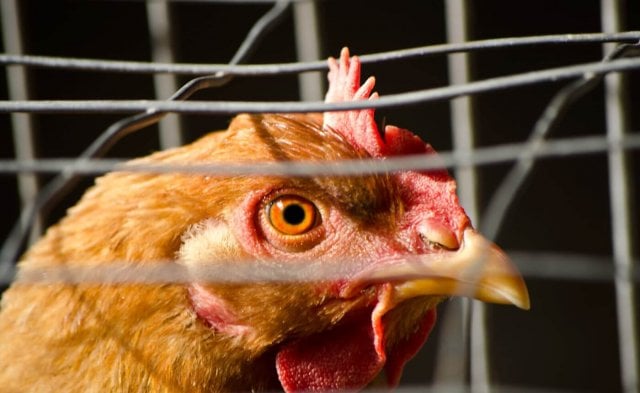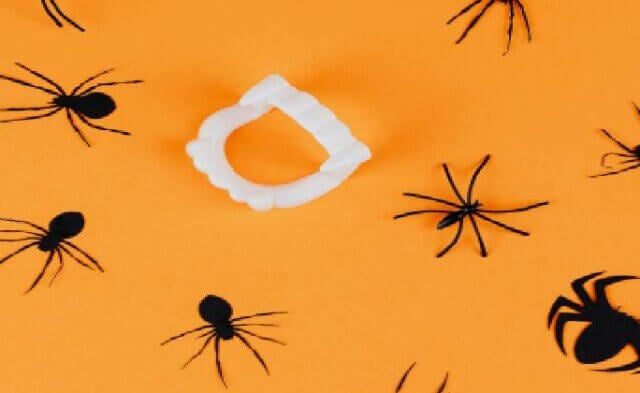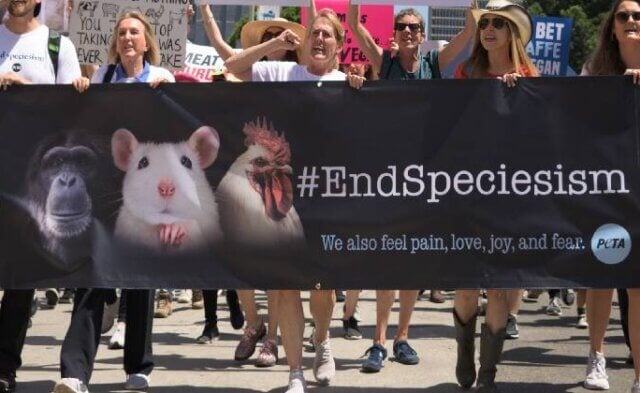This article was originally published in PETA’s Augustus Club newsletter. PETA’s Augustus Club is a complimentary club honoring those who are leaving a legacy for animals through a planned gift to PETA. If you have made a planned gift to PETA, please let us know so that we can thank you! If you have not yet left a legacy for animals but would like information on how to do so, please contact us.
For more than two decades, Lori Kettler has been stopping animal exploiters from keeping public records hidden from PETA’s researchers, ensuring that government agencies fulfill their duty to protect animals, and making certain that animal abusers are punished in the criminal justice system.
Augustus Club: How did you become involved in animal rights?
Lori Kettler: I went vegetarian after seeing that there is no way to raise animals for milk and meat humanely and still make a profit. I saw this firsthand, because my former partner and his family were dairy and poultry farmers.
I was working in environmental law, but rather than focusing on populations of species, I wanted to focus on the well-being of individual animals. So I applied to work at PETA and came on board in 2000, which is also when I went vegan.
AC: What was your first job at PETA?
LK: I was counsel in the Cruelty Investigations Department. My position has evolved over the years—but the biggest difference is that when I was hired, I was the only in-house attorney, whereas now we have the largest and most effective legal team working for animal rights in the world!
AC: Describe a facet of your job that makes you especially happy.
LK: It’s the fact that everyone here is 110% committed to the cause.
AC: What are some of your most gratifying accomplishments in your time at PETA and the PETA Foundation?
LK: Going way back to my early days, I was thrilled to help rescue six polar bears who were being carted around the tropics in sweltering trailers by the Suarez Bros. Circus. After we filed a lawsuit, the U.S. Fish and Wildlife Service confiscated the bears and sent them to accredited zoos.
In recent years, the most rewarding thing has been pulling back the curtain on vivisection. Animal experiments take place behind closed doors, and the experimenters really don’t want people to see what they do. So it’s satisfying to win Freedom of Information Act (FOIA) cases and force experimenters to turn over records and videos to PETA.
AC: Do you think PETA uses the FOIA more effectively than other organizations?
LK: Definitely. The proof is in how hard animal exploiters fight to keep us from getting their records. That’s because they know that PETA will make powerful use of them. So they work like crazy to hold onto records that they might be less reluctant to release to other groups. Consequently, we have to sue more often. I’m so grateful to our Augustus Club members for donating the resources that allow us to do that.
AC: Describe some of the ways in which institutions try to thwart PETA’s public records requests.
LK: The most common tactic is to charge outrageous fees—sometimes six figures, and in one instance nearly seven! In a case several years ago, we requested records from NIH on maternal deprivation experiments on baby monkeys conducted by a man named Stephen Suomi. NIH tried to charge us $100,000 to release the records! It lost that battle, and we forced it to release hundreds of hours of video. Then we launched an intensive campaign. As a result, after 30 years of these atrocities, the lab was closed!
Another tactic is for institutions to claim that what happens to animals in publicly funded experiments in publicly funded universities and government facilities is confidential business information.
Those are the issues that we have to litigate the most often.







